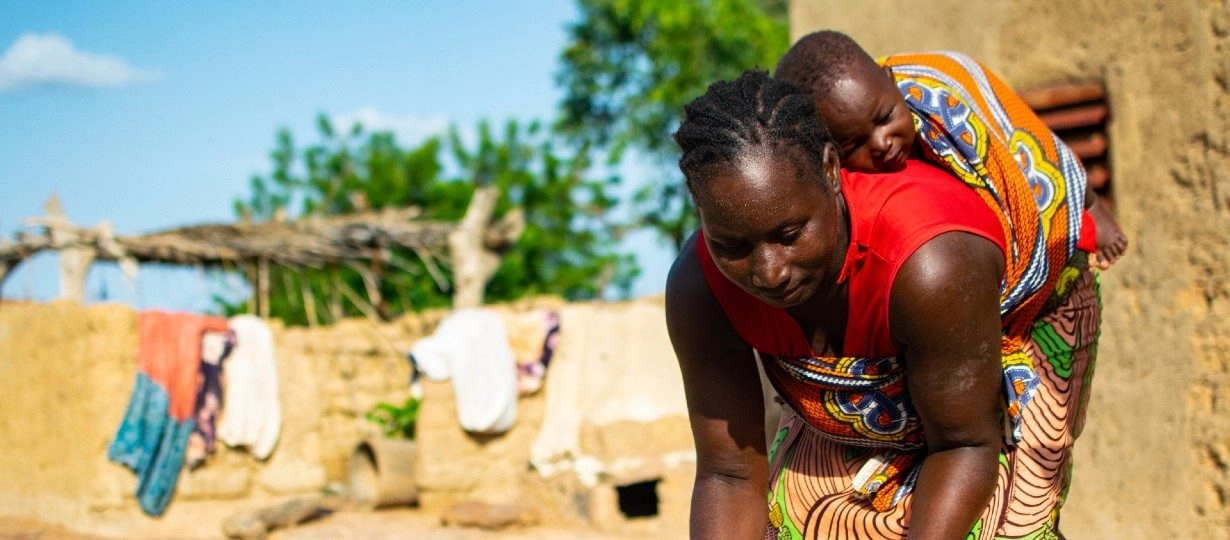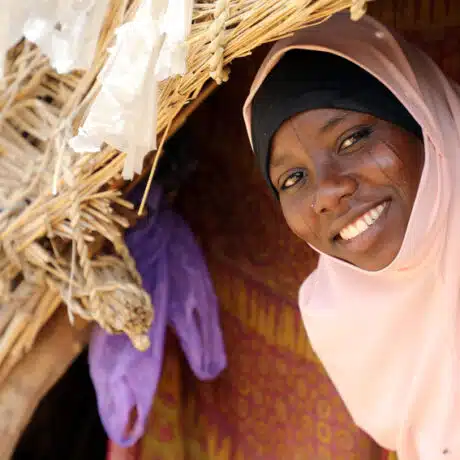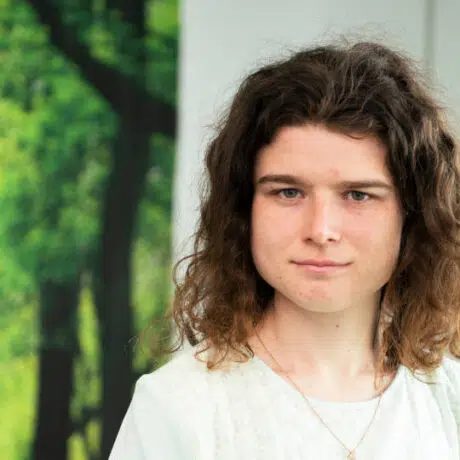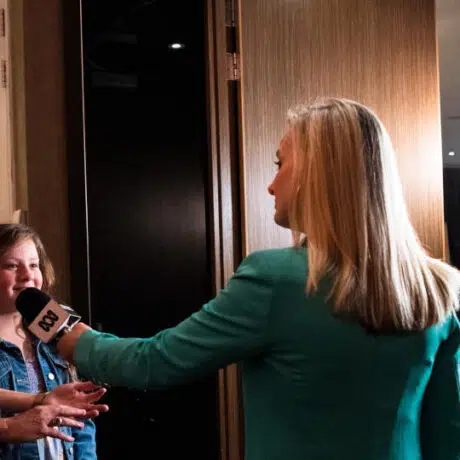News and Stories - Girls Rights - 24 June 2022
Ending the cycle of FGM: “My daughter is not cut.”

By Hannah Potter
Female genital mutilation (FGM) is a practice still performed in at least 96 countries globally, and one which at least 200 million women and girls are living with the consequences of right now. 30-year-old Awa is one of these women.
Awa is a mother of four and lives in Burkina Faso, where FGM was banned in 1996. However, according to UNICEF, 76% of women aged between 15 and 49 in Burkina Faso have been subjected to FGM.
This harmful practice is not only extremely traumatic for those subjected to it, but can also result in serious injury or infection. It often leads to long-lasting health effects for women and girls, and haemorrhage or infection caused by the practice can be fatal.
“I’ve been sick for six years,” says Awa. “It’s difficult to sit and walk. I can’t work. It was the FGM that did this. I went to see a doctor and they told me that it cannot be treated here, only in the hospital.”
Awa became ill after giving birth to her third child, but because she lives in a remote community with poor access to health services, she was not able to access the medical care necessary to help her. After learning of Awa’s situation, Plan International stepped in with the funds she needed for treatment. “The operation was done three months ago and I’m not sick anymore,” says Awa. ““I was happy with the caregivers because I got my health back.”
Awa’s own experience inspired her to advocate strongly against FGM in her community, and she was determined to make sure her daughter would not have to endure what she did.
“When I was sick, I suffered a lot, so I raise awareness to not cut children.”Plan International is currently working with the Austrian Development Agency and partners in the Mouhoun region to implement community-based programs with the goal of educating people on the dangers of Female Genital Mutilation, as well as building knowledge of sexual and reproductive health.
This is crucial in eliminating the practice of Female Genital Mutilation as it helps to change attitudes towards women’s rights and the rights they have to their bodily autonomy, while also strengthening and building health and social services to support the treatment of women and girls who have been subjected to FGM.
By donating today, you are helping to implement these vital services for women and girls, and ultimately helping to put an end to this harmful practice for good.





